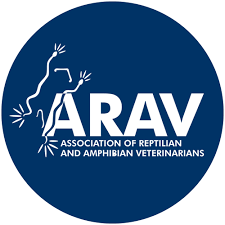ABOUT VETERINARY MEDICINES
Veterinary Medicines Directorate (VMD)
The Veterinary Medicines Directorate (VMD) is the government agency responsible for protecting animal health, public health and the environment in relation to the use and manufacture of veterinary medicines in the UK.
Each product has a Summary of Product Characteristics (SPCs) that tells you all about the medicine. The SPCs for all the medicinal products dispensed, prescribed or sold by Veterinary-Parasitology (ParasiteVet) are available from the Veterinary Medicine’s Directorate Product Information Database
or from the links in each product page.
Authorisation and classification of veterinary medicines
Any product that is marketed as a veterinary medicine in the UK must be authorised which will include labelling in English. The label will include a unique UK marketing authorisation number or may include a statement "The veterinary medicine is marketed in accordance with Schedule 6 of the Veterinary Medicines Regulations - Exemptions for small pet animals" or similar.
There are four classifications of authorised veterinary medicines:
- POM-V: Prescription-only medicine - Veterinarian.
- POM-VPS: Prescription-only medicine - Veterinarian, Pharmacist, Suitably Qualified Person (SQP).
- NFA-VPS: Non-Food Animal - Veterinarian, Pharmacist, Suitably Qualified Person (SQP).
- AVM-GSL: Authorised Veterinary Medicine - General Sales List.
Prescription Only Medicines - Veterinary (POM-V)
A product classed as a POM-V (Prescription Only Medicine) can only be prescribed by a veterinary surgeon and can be sold by a veterinary or human pharmacy if you have a valid written veterinary prescription. Veterinary prescriptions must be written in accordance with UK regulations and signed and dated by a Veterinary Surgeon who is practicing in the UK and registered with the Royal College of Veterinary Surgeons (RCVS).
Each prescription is valid for a maximum of six months from the date it is signed, or less if indicated so by your vet. This is restricted to 28 days for Controlled Drugs. Controlled Drugs are listed in Schedules 2-4 of the Misuse of Drugs Regulations 2001 and is not part of the scope of this article.
Veterinary-Parasitology can only issue up to the quantity of medication indicated on the prescription within the valid period. Any repeats allowable on the prescription must be ordered within the valid period. No medication can be issued against a prescription after the expiry date as it is no longer a valid document. If medication has been prescribed via a consultation with us, this can be sent out to you in the post.
Each prescription is considered a legal document containing the written instructions your vet has provided outlining which medication is needed, the amount to be supplied, the dosage, whether it is eligible for repeats or not and how many, details about the animal under treatment, the Veterinary Surgeon who has prescribed it and confirmation that the animal is under their veterinary care. It is illegal to alter the details on your prescription. Please speak to your vets is you believe something is incorrect or you do not understand any of the instructions clearly.
The vet is legally obliged to issue you with a prescription if you request one and he/she can make a reasonable charge for providing a written prescription. They cannot prevent you from purchasing your prescribed items elsewhere.
Prescriptions can be uploaded when purchasing medications from this site.
Registration
Veterinary-Parasitology (ParasiteVet) is registered as a Veterinary Practice with the RCVS. Our premises reference number is 7392525, which can be verified by searching the RCVS Find A Vet. Ross Ashley Machin is Veterinary-Parasitology's Director, Veterinary Surgeon and Responsible Qualified Person (RQP). He is a Member of the Royal College of Veterinary Surgeons (MRCVS) which can be verified on the RCVS website.
Prescription misuse
It is an offence to alter a prescription issued by a vet, pharmacist or SQP and to fraudulently produce a prescription. All prescriptions are carefully checked and any suspect prescriptions are reported to the VMD or the police.
References and Further Reading
Veterinary Medicines Directorate (VMD) - Owners Handout
Veterinary Medicines Directorate (VMD) - Reporting Form for Veterinarians
Download/Print (Vets): https://www.aht.org.uk/wp-content/uploads/2018/11/Vaccine_Adverse_Event_Reporting_Form_.pdf
Online (Vets and Owners): https://www.vmd.defra.gov.uk/adversereactionreporting/Product.aspx?SARType=Animal
Veterinary Medicines Directorate (VMD) - The Law
European Medicines Agency (EMA) veterinary pharmacovigilance information
World Health Organisation (WHO) pharmacovigilance definition and information
Veterinary Pharmacovigilance in the United Kingdom, VMD Annual Review 2018
The Veterinary Medicines Regulations, 2013 (Schedule 1, Part 8)
Vol 9b of The Rules Governing Medicinal Products in the European Union – Guidelines on Pharmacovigilance for Medicinal Products for Veterinary Use
Directive 2001/82/EC on the Community code related to veterinary medicinal products
Regulation (EC) No 726/2004 laying down Community procedures for the authorisation and supervision of medicinal products for human and veterinary use and establishing a European Medicines Agency






